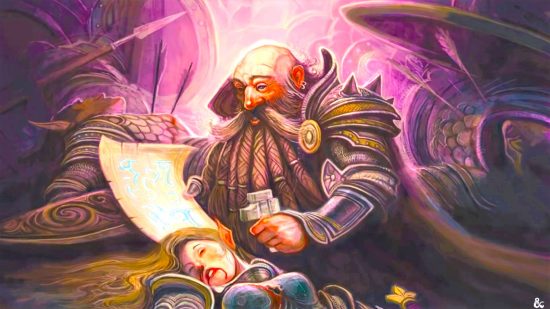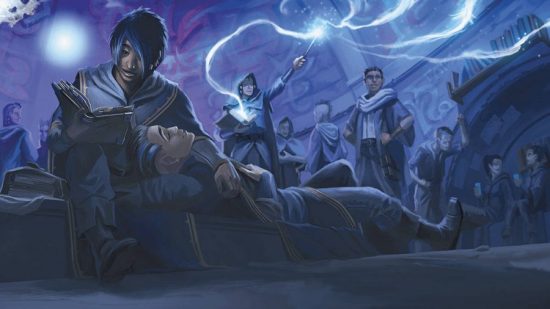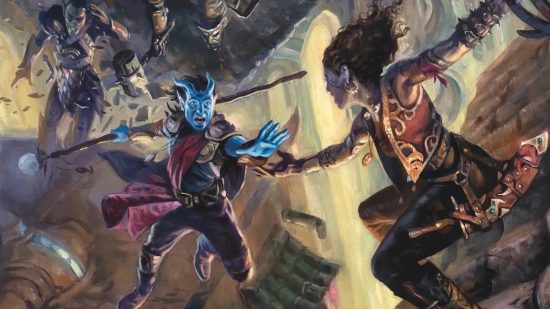My Dungeons and Dragons character almost died last week, and I’m a little disappointed that he didn’t. It’s not that I’m bored with his story, and I’m not currently shopping for a different build – I just love dying in D&D. If you want to tell better stories, my advice is this: don’t fear the reaper. Embrace death and all its narrative possibilities.
If your character is capable of kicking the bucket, it immediately ups the stakes of any DnD campaign. I’m sure you had plenty of reasons for going on this adventure in the first place, but there’s no graver thing to lose than a life. Or a friend’s life.
When my DnD Druid Ortle hit the floor, it sent a wave of panic through the party. This Tortle is about as lawful good as they come, and he’s spent over a year showering his allies with kind words and hugs. Losing him was more than a strategic disadvantage – his death would dilute the glue that kept the group together. Nobody wanted Ortle to die (except, apparently, me).
Ortle was downed in the eye of the storm, with DnD monsters flanking him on all sides. Everyone held their breath through the failed DnD death save. Then, they rushed into action. A well-timed Vortex Warp teleported him to safety, and one of the party’s DnD Artificers handed out some healing.
Ortle and this particular character haven’t always seen eye to eye. The party’s Artillerist is a wise-cracking, ethically dubious character who always knows the perfect prank to play on an innocent creature like Ortle. But as Ortle was pulled to his feet, he remembered why he came to care for his friend so much in the first place.
Death can help you strengthen your relationship with others in your D&D party. I mean narrative strength here – it’s just as interesting to see a friendship fall apart due to selfish acts. If a nearby ally had chosen to leave Ortle behind, what then?
These are the significant storytelling beats that came about because of a near death experience, but an actual death can have even more explosive effects. I was keen to see the party dynamics shift should Ortle be taken out of the picture.
Post-mortem, would the group bond by mourning him? Or would tensions rise without a lawful good Tortle to remind everyone of the power of friendship? Plus, how would they react to the new character I would introduce to take Ortle’s place? So far, everyone in the party was a childhood friend of the others, so who knows how they’d take to a strange late-comer.
The end of every D&D character is the beginning of another. It’s a chance to start fresh and try something different. Strategists may choose a DnD class that fills a gap in the current party’s skill set. Storytellers will dream up someone who helps drive the narrative forward. Maybe you’ll simply invent an identical twin brother for your old character who’s now out for revenge. Whatever you choose, you’ll look at your campaign with new eyes.
I love Ortle dearly, and achieving his goals would bring me great joy. A perfect ending would see him complete the campaign’s quest, walking off into the sunset with his dearest friends. But there is another perfect ending out there, where Ortle is cut down defending the people he loves most.
In D&D, death doesn’t mean you’ve lost. You’re just telling the same story a little differently.
If your Dungeons Dragons character just died, let us help you make a new one. We can tell you everything you might need to know about DnD races, 5e feats, and DnD backgrounds.


